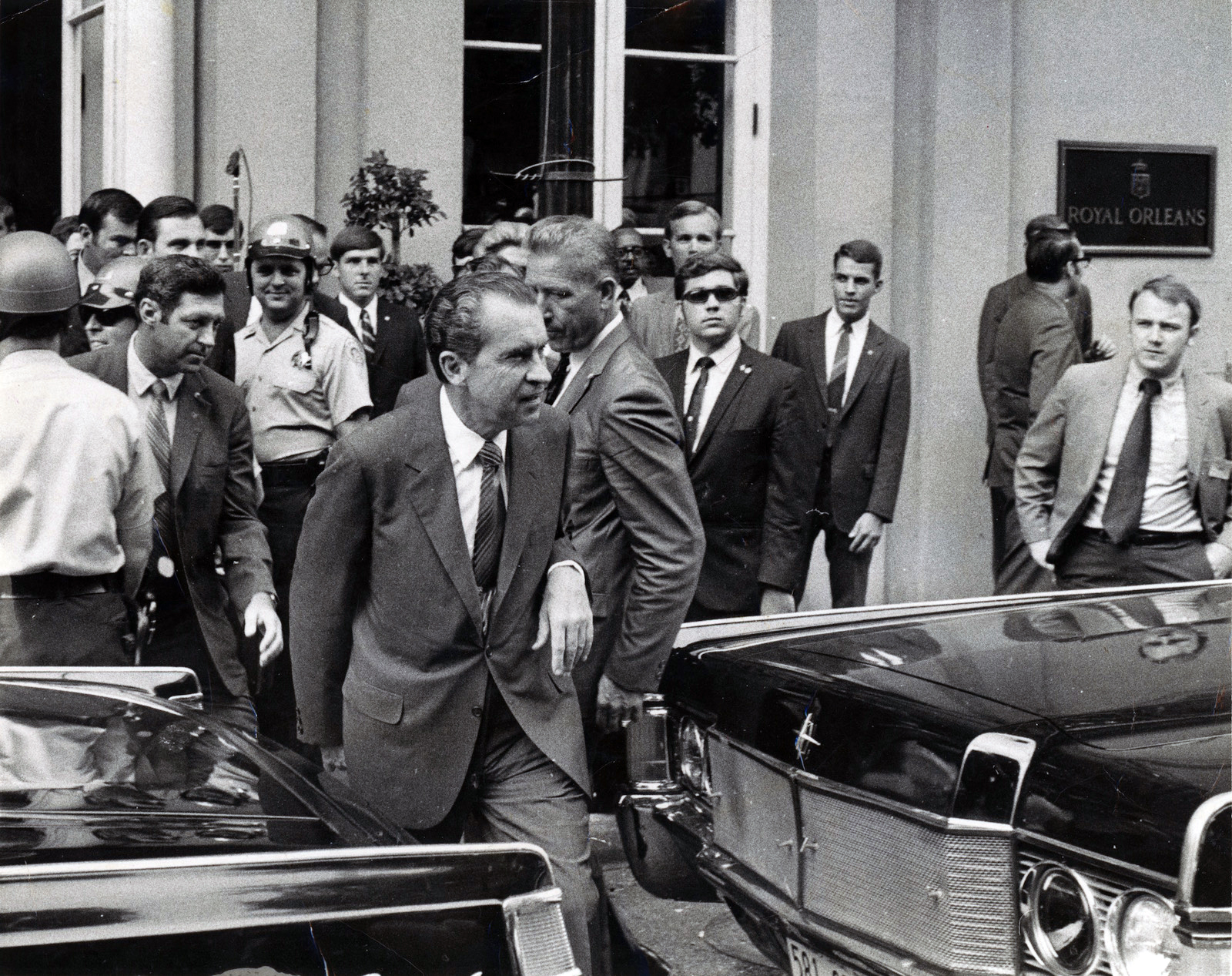Political and historical revisionists have been busy lately, what with blatantly stupid or insensitive racial remarks from today's two presidential contenders, racial unrest over policing, the abuse of the "race card" by the left, or the empowerment of white supremacy by the right.
There has been a frantic, almost obsessive effort to portray each party as "the party of racism". There has even been a completely retarded bit of political theatre aimed at "banning" the Democrat Party (seriously - we pay these jokers for this?).
Historically, neither party is the party of the past. Today's Republicans do not in any way resemble the Party of Lincoln, and today's Democrats do not in any way resemble the party of George Wallace. Parties are
not ideologies. Parties change their ideologies - not completely, but sufficiently in order to achieve their main aim:
winning votes.
That is where the Southern Strategy comes in. The south represented and still represents a substantial largely conservative voting block and one that DIVIDED the Democrat Party. The Democrat Party long held it, reversing the gains made after emancipation and supporting southern landowners in maintaining their racial caste system through a host of new laws that robbed black people of their newly realized rights.
That changed though, with the Civil Rights Movement. Between 1950 and 1968, the government passed 4 bills that were collectively known as the Civil Rights Acts. Both the Democrats and the Republicans voted to pass them. In those votes, the Republicans were more unified than the Democrats. It's a mistake to assume the Democrats were a "united party", they were far less united then than now.
The Democrats were divided, with southern Democrats holding the south, the remainder spread throughout the US and the voting for these pieces of legislation reflected that division. This is important to remember because broad brushing either party as "the party of racism" is both dishonest and unhelpful.
So what about the Southern Strategy? What is or was it? It was a political strategy, initially formed by Nixon, to
turn the Democrat stronghold in the south to Republican. Was it racist? Yes...in that it played on racial divides. Does that mean Nixon was racist? No...this isn't necessarily about personal feelings about race. Early on, Nixon was a strong proponent for desegregation, then he pivoted, drawing back from it and altering his policies when he developed the Southern Strategy.
Ironically - this is where the latest bit of historical revisionism comes in, with Talking Heads opining:
Candace Owen: "The Southern Strategy is a myth that never happened"...a claim rated as
totally false by Politifact.
It's really about the
POLITICS of PARTY CONTROL. What would it take (and is it even possible) to gain control of this substantial region?
On August 14, 1970, Richard Nixon treated New Orleans, a city keen on parades, to a campaign-style motorcade. With Nixon standing and waving through the sunroof, his limousine moved slowly down wide…
www.southerncultures.org
In his 1991 book, One of Us: Richard Nixon and the American Dream,New York Times columnist Tom Wicker captures the political two-step that Nixon danced as he sought to govern and to carry out a strategy to turn the South into a Republican-dominated region as it had been a “solid Democratic South’’ for much of the twentieth century. Wicker gave Nixon credit for “a spectacular advance in desegregation’’ in 1970. “Perhaps the most significant achievement of his administration’s domestic actions,” Wicker wrote, came as “the Nixon administration had appeared in retreat from desegregation, while actively courting the white vote.”
Indeed, in his 1968 campaign and afterward, Nixon used coded language, political symbolism and court interventions as signals to southern white voters. In the aftermath of city riots in 1967 and 1968, as well as Vietnam War protests, Nixon said he was for “law and order.’’ His administration went to court to slow down school desegregation. Nixon tried to install two so-called strict-constructionist conservatives, Clement F. Haynesworth Jr. of South Carolina and G. Harrold Carswell of Florida, on the Supreme Court, but the Senate turned down both nominees...
In their book, The Southern Strategy, published shortly after the 1970 mid-term elections, Atlanta journalists Reg Murphy and Hal Gulliver wrote a detailed—and critical—account of the strategy in practice. “It was a cynical strategy, this catering in subtle ways to the segregationist leanings of white Southern voters,’’ Murphy and Gulliver wrote, “yet pretending with high rhetoric that the real aim was simply to treat the South fairly, to let it become part of the nation again.”
White voters got the message. Along the New Orleans motorcade route, a Nixon supporter held up a hand-lettered sign that read, “I am for Nixon . . . Less Federal Control. Equal Treatment for the South.”
So, while the Democrats were pandering to the newly enfranchised black voters, the Republicans were pandering to the southern white voters unhappy with desegregation and other Civil Rights legislation that they felt "disempowered" them.
That's the history, in part.
No one has clean hands in regards to race.
But what about now? Well...the Southern Strategy is still going on. The Democrats are playing to the regions black population and it's more liberal urban white population. The Republicans are pivoting harder towards a more substantial rural and suburban white population, conflating the Confederacy, its monuments and it's flag, with honor and patriotism and an attack on our culture, while making an appeal to authoritarian law and order in the wake of racial unrest and social upheaval.
Today's Southern Strategy still capitalizes on the same fears of disenfranchisement but adds some new (and, newly revived old) enemies: immigrants, Mexicans, communists, Marxists.
It has little to do with racism...and a lot to do with party control.
And yes...the Republican Party is still at it. As are the Democrats.







